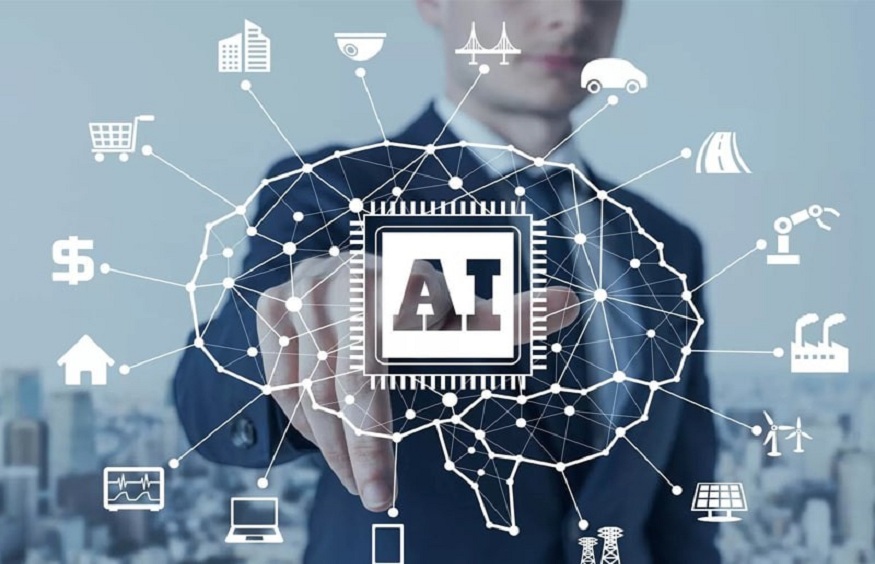Agentic AI solutions are changing how decisions are made in businesses and organizations. Advanced artificial intelligence enables these systems to analyze vast amounts of data, predict outcomes, and make recommendations with little human intervention. This shift will enable faster, more accurate decisions with reduced errors and enhanced efficiency. Agentic AI solutions are particularly useful in healthcare, finance, and marketing, where decisions are largely based on data. Moreover, agentic AI solutions can make organizations make wiser and quicker decisions through data analysis, offering advice with less human interference. And with these AI technologies continuing to evolve, their contribution to driving strategic decisions is foreseen to help organizations stay competitive in fast-changing markets.
Know how the best agentic AI solutions help with decision-making processes
Decision-making is being made faster and more accurately in a trice with Agentic AI. The advanced AI will revolutionize the data processing of a business, risk management, and customer service engagement. Thus, Agentic AI will reshape the decision-making process by automating regular tasks or developing the same into insights based on data analyses.
1. Enhanced data processing and analysis
These revolutionize decision-making by dramatically improving how organizations handle and analyze many large volumes of data. Indeed, the large volume and intensity of information businesses are involved in today cannot be processed using conventional data analyses. AI machines perform deep searches in a vast amount of data with an incomparable display of accuracies that human will otherwise leave unnoticed. The results produced from real-time data could also involve unstructured forms from social networks and discussions of customers about certain company issues.
2. Automation of routine decision-making tasks:
The most important impacts that Agentic AI can have in making decisions include the enablement of automating tasks. Most decisions within an organization are based on repetitive patterns or standardized processes. AI systems can take up this task to minimize human errors and reduce employees’ burden to use this time in more value-creation activities. This will help organizations to be more streamlined and consistent across different departments, with AI making these routine decisions. In addition to that, AI-driven automation brings speed and scalability to decision-making.
3. Personalized and customer-centric decisions:
Agentic AI is the future of decision-making and enables businesses to make customer-centric decisions. Traditional decision-making views customers in broad categories, which can lead to generalized strategies that may or may not fully meet the needs of each of them. Companies can analyze individual customer data by using AI to create experiences, offers, and services tailored just for them. For instance, AI may prompt customers in retail settings based on their browsing history and preferences. Moreover, the things that will make the customer more engaged in the shopping experience.
4. Improved collaboration and decision support:
It helps leaders make more informed decisions. Many organizations suffer from information silos and fragmented communication, which may hinder proper decision-making. AI systems integrate data from various sources and allow a single platform on which teams can collaborate more effectively. By providing insights into all departments, AI helps the leadership make informed decisions on wide understanding across different aspects of a business. Whether in strategic planning or crisis management, AI is an indispensable tool for improving collaboration.
5. Risk management and mitigation:
Usually, traditional risk management relies on historical trends and human intuition to determine potential risks. However, with the application of agentic AI systems, there is an increased evaluation of factors that include real-time data, events outside the mainstream, and even emerging patterns, contributing to a better and more accurate prediction of risks. Moreover, AI can also model various scenarios in depth, showing businesses, how different risks could develop and their mitigating options. In addition, AI continuously learns from new data to accommodate changes in conditions.
6. Faster decision-making process:
Conventional decision-making could be very time-consuming since it may involve pooling and analyzing large volumes of data. Moreover, the best AI systems can speed through this data and present relevant insight to the decision-maker to take swift action. Such agility in making faster decisions can provide a much-needed lead to companies operating in such a dynamic global business ecosystem, whereby immediate adaptation becomes necessary either from market alterations or the changing needs of their customers. More importantly, AI-driven speed does not limit itself to macro decisions.
7. Continuous improvement and learning:
Another powerful value proposition of Agentic AI is continuous learning and improvement. AI systems can continue to analyze new data and refine their decision-making models based on the information gleaned. This means that over time, AI can be good at predicting outcomes, identifying trends, and recommending actions to produce desired results. Unlike humans, who may be driven by prejudices or knowledge based on the past, AI keeps evolving with new patterns so that any decision is based on the most recent data. This ability to learn is also helpful for businesses.
8. Better resource allocation:
Having Agentic AI sometimes made it easier to be smart about resource allocation for these businesses. With AI, especially due to its analytical nature, processing all that vast information and sending recommendations toward effective strategies to perform resource investment. AI will take them to optimal usage, whether about spreading CMOs’ marketing finances across channels or organizing personnel schedules. Using an example in manufacturing, the AI analyses data from a production line and adjusts easy workflow operations to provide efficient material use and labor.
9. Improving customer service and engagement:
AI-driven chatbots and virtual assistants can engage customers anytime. They answer queries and sort out some of the simpler issues right away, eliminating human interference, which contributes to greater speed and consistency in customer support. Hence, improving customer experience while alleviating pressure on customer support. By allowing AI to answer routine questions and complete routine tasks, customer service agents can devote themselves to more complex questions. Moreover, AI can analyze customer interactions to find patterns in behavior, preferences, and issues.
Final words
To sum up, agentic AI solutions are very important in automating decision-making processes and increasing business efficiency, scalability, and innovation levels. These allow the ability to act autonomously, becoming very potent in areas such as customer service, logistics, and data analysis. A reliable agentic AI for customer service is needed to integrate these technologies seamlessly and get the real potential of AI-driven strategies. Thus, choosing agentic AI in an organization can reduce operational costs while scaling up the quality of its decisions.





